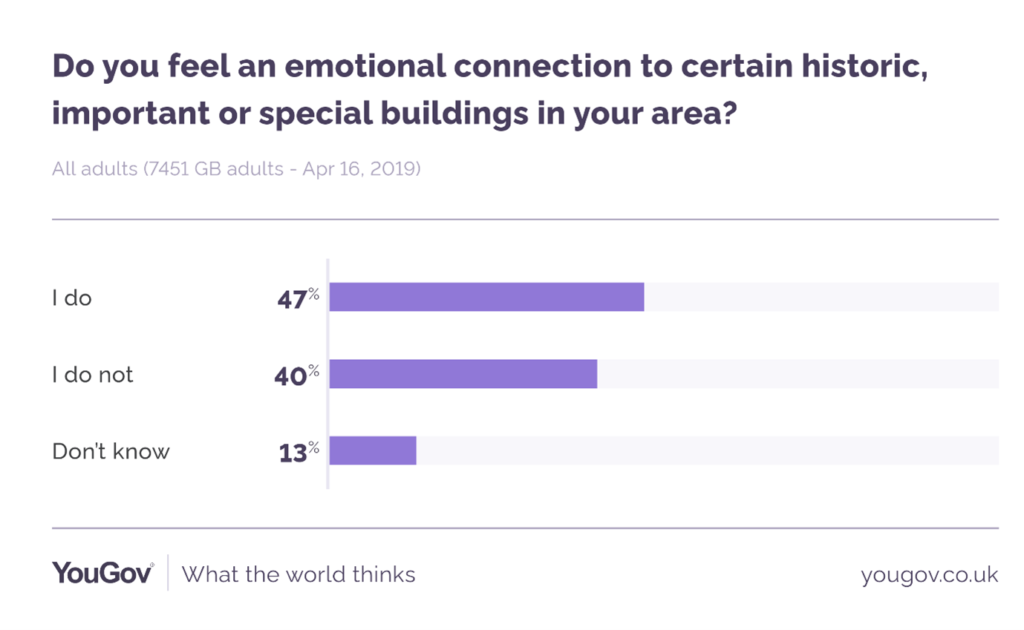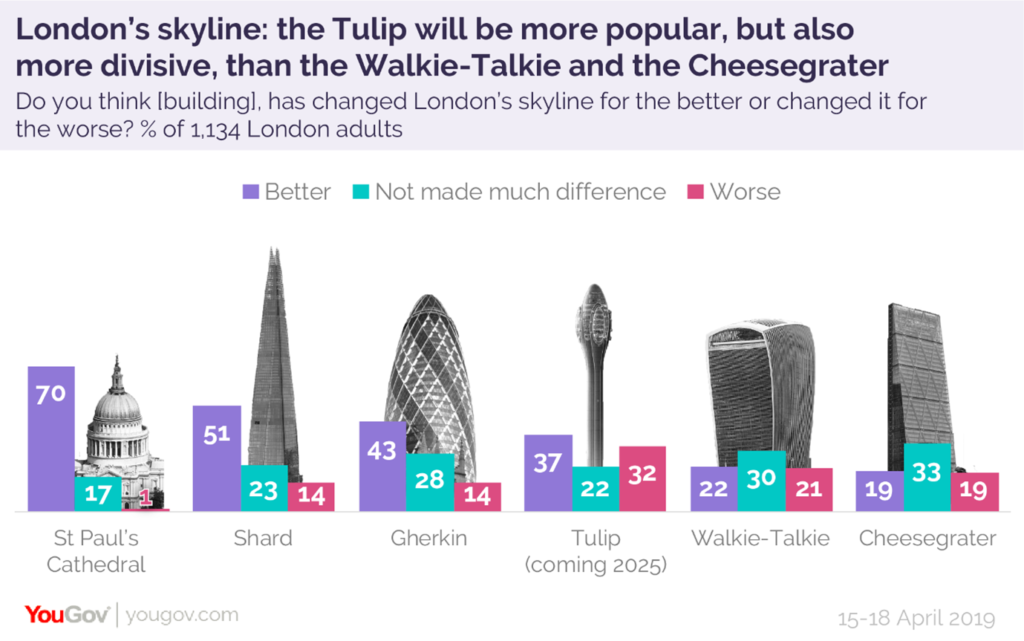April 20th, 2021.
Understanding Place Attachment Theory and How it Affects Opinions of New Construction
Whether it is your childhood school being demolished, a favourite drinking hole being transformed into a snazzy restaurant, or a local monument falling foul of fire, many of us form emotional attachments to older buildings and can have a big reaction should change be afoot. Something which can sometimes colour our opinion of new construction too.

According to YouGov data, half of people feel an emotional connection to certain historic, important or special buildings in their area, but there are mixed reactions to some new buildings including the new tulip skyscraper previously planned for London.
So, let’s discuss place attachment theory and how future property projects are affected by it.
What Does the YouGov Data Say?
In a 2019 poll, YouGov asked 7,451 British adults whether they felt an emotional connection to certain historic, important or special buildings in their area and 47% said they do, 13% said they didn’t know, and 40% said they do not.

What Is Place Attachment Theory?
Put simply, place attachment theory is the name given to the emotional bond between person and place.
According to a study reported in the Journal of Environmental Psychology, place attachment theory has strong links with our childhood experiences. If we experience a pattern of positive experiences in a place as a child, our unconscious associates these positive feelings with the location and creates an ‘attachment’ long-term into adulthood.
For example, do you remember visiting a place as a child, only to go back as an adult and it not match up to your memories? This is because your ‘attachment’ is routed in the experiences, not the physical space.
It’s important to also understand the difference between place identity and place attachment. Unlike place attachment theory, place identity theory comes from beliefs, meanings, emotions, ideas and attitudes assigned to a place. For example, a place of worship.
So, by this understanding, older buildings should be more popular than their newly constructed counterparts, simply due to the number of associated memories.
So, What Does This Mean for New Construction?
Well, another YouGov poll from the same year found that surveyed Londoners are split on whether ‘the Tulip’, which at the time of survey was awaiting planning permission approval, would have a positive impact on the London city skyline or not.
Planned to be the second tallest building in London by its completion in 2025 (the Shard being the tallest), the Tulip was eventually refused planning permission by Sadiq Khan on 15th July 2019, with Historic England stating that it was ‘the wrong building, in the wrong place’ and that the design and height ‘would cause permanent and irreversible damage to the setting of the Tower of London, and in turn, the image and identity of the capital’.
It seems the British public agreed. At the time of polling, just 37% of respondents said The Tulip would have a positive impact on the skyline, with 32% saying it would change it for the worse. 22% were indifferent.

It certainly seems historic buildings with their classic architecture remain most popular with the public. When the same question was asked about other iconic London skyscrapers, just the Walkie-Talkie and Cheesegrater were seen less favourably, but St Paul’s Cathedral with its magnificent dome outshone all of its modern counterparts with 70% of people thinking it changed the skyline for the better.
Are You Considering Refurbishing an Older Property?
If these polls are anything to go by, saving and refurbishing an older property is seen by many people as a respectful and admirable thing to do. If you’re considering taking a similar project on and require funding, get in touch with our friendly team and we can discuss refurbishment finance loans.
Of course, not all properties are redeveloped, some are ground-up projects. We can also help find finance for these construction projects, so please do send us a message if you require a development loan.





